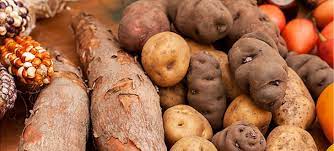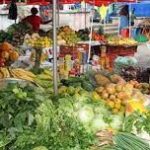The Ministry of Agriculture began testing verities of wheat on 200 parcels of land in 2019. Today, the Russian-Ukraine war begs for expedition of the project, and finding alternatives to the cereal.
Cameroon imported some 860,000 tonnes of wheat in 2020 from Russia, Canada, France and the U.S to the tune of 150 billion francs CFA, according to figures from the office in charge upgrading local businesses to be more competitive. The statistics were revealed on August 25, 2021 in Douala.
But this year the price of wheat keeps soaring, because of the Russia-Ukraine war. The flow of wheat from Ukraine and Russia that are major world producers of the cereal has been disrupted by the war. Supply routes have changed. U.S vessels have shipped wheat to Spain for the first time in almost five years.
Cameroon a non wheat production country is forced to shock the increase in the price of wheat. In 2018, Cameroon wheat production accounts for 234,4665 metric ton only. Therefore, Cameroon is totally dependent on the import of wheat, which is increasing from year to year, suggested a report of Mordor Intelligence.
Wheat is typically milled into flour which is then used to make a wide range of foods including bread, crumpets, muffins, noodles, pasta, biscuits, cakes, cereal bars, sweet and savoury snack foods, crackers, crisp-breads, sauces and confectionery. Prices of these products made out of wheat keep going up. In Cameroon the price of a bag of flour is up to 22,500 CFA francs from 19,500 francs.
But Cameroon used to produce wheat, up till 1980 when the state-run Sodéblé in Adamaoua region folded up, because of poor management. Experts from the country’s research institute of agriculture, IRAD, say the glorious days of growing wheat in the country can be brought back. In 2019, the Minister Delegate to the Minister of Agriculture Cleméntine Anaga Messina in an interview with the French language weekly L’Oeil du Sahel said the country after testing several varities of wheat; four showed signs of doing well in Cameroon. “The next step is to pick the best adapted variety to the agro-ecologic zones. It will take one of two years,” the minister delegate told the press after visiting experimentation farms in Wassandé in the Adamaoua region where Sodéblé had farms. She said wheat can also be grown in the Northwest region.
Facing competition
Beyond growing wheat in Cameroon, the country will have to stand up to competition with cheap imported wheat. Yields could begin dropping as soon as production starts. In Zimbabwe, after attaining self-sufficiency, the yields starting falling because of marketing challenges for small farmers, increasing cost of production and the lack of suitable wheat varieties, a report of the New Humanitarian said. However, Cameroon could grow better-protein packed wheat than what is imported. While there is growing demand for bread in Cameroon, the protein content of the imported wheat used for bread-making is less than 12 percent, the New Humanitarian cited an abstract of a study published out of Cameroon. High-quality wheat has 14 to 15 percent protein. The lead author of the study Michael Taylor, from the Norwegian University of Life Sciences, who had worked with the Divisional Delegation of Agriculture and Rural Development Fontem-Lebialem in Cameroon, identified varieties of wheat with high protein content that could be grown in Cameroon.
Turn to alternatives
Cassava is a wheat substitute that does well in Cameroon. Government should push harder for the production of Cassava. Success stories of cassava farmers could be replicated across zones where the crop can be grown in huge industrial quantities. Ewoty Njié, a cook is now involved in the production of cassava instead of wheat.
He came up with a cassava brand named ENEC, 7 years ago. His dream is to produce on a large scale, and double his flour output that is currently between three hundred to five hundred kilos a year. Initiatives such as that of Ewoty Njié might become the game changer if government is willing.
IRAD in a statement last April 6 asked government to include a clause which obliges the use of 10% of cassava in the fabrication of flour from wheat. That alone, IRAD authorities said will cause the production of 680,200 tones of the tuber on 34,000 ha and save 11 billion francs CFA from the importation of wheat.
Jude VIBAN



